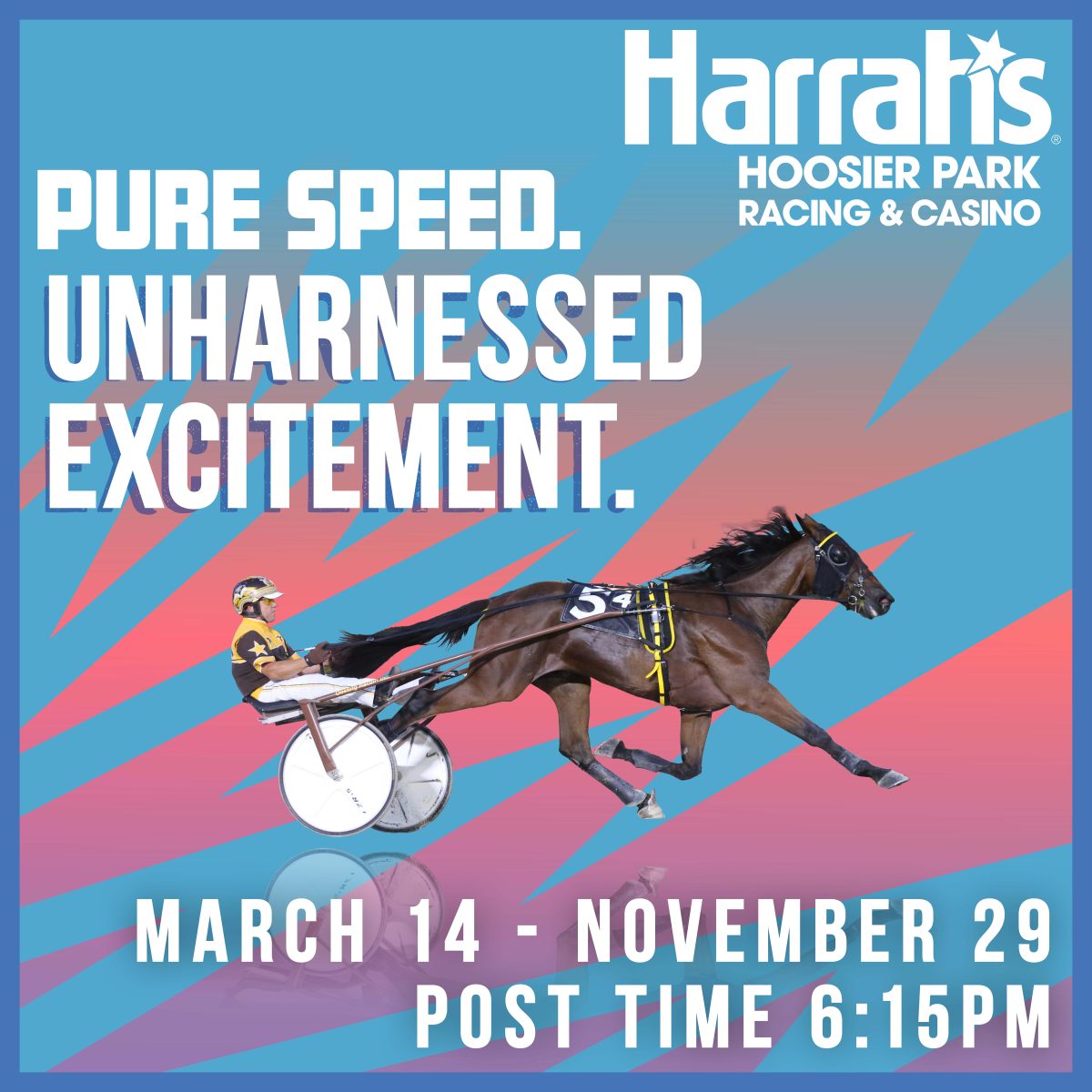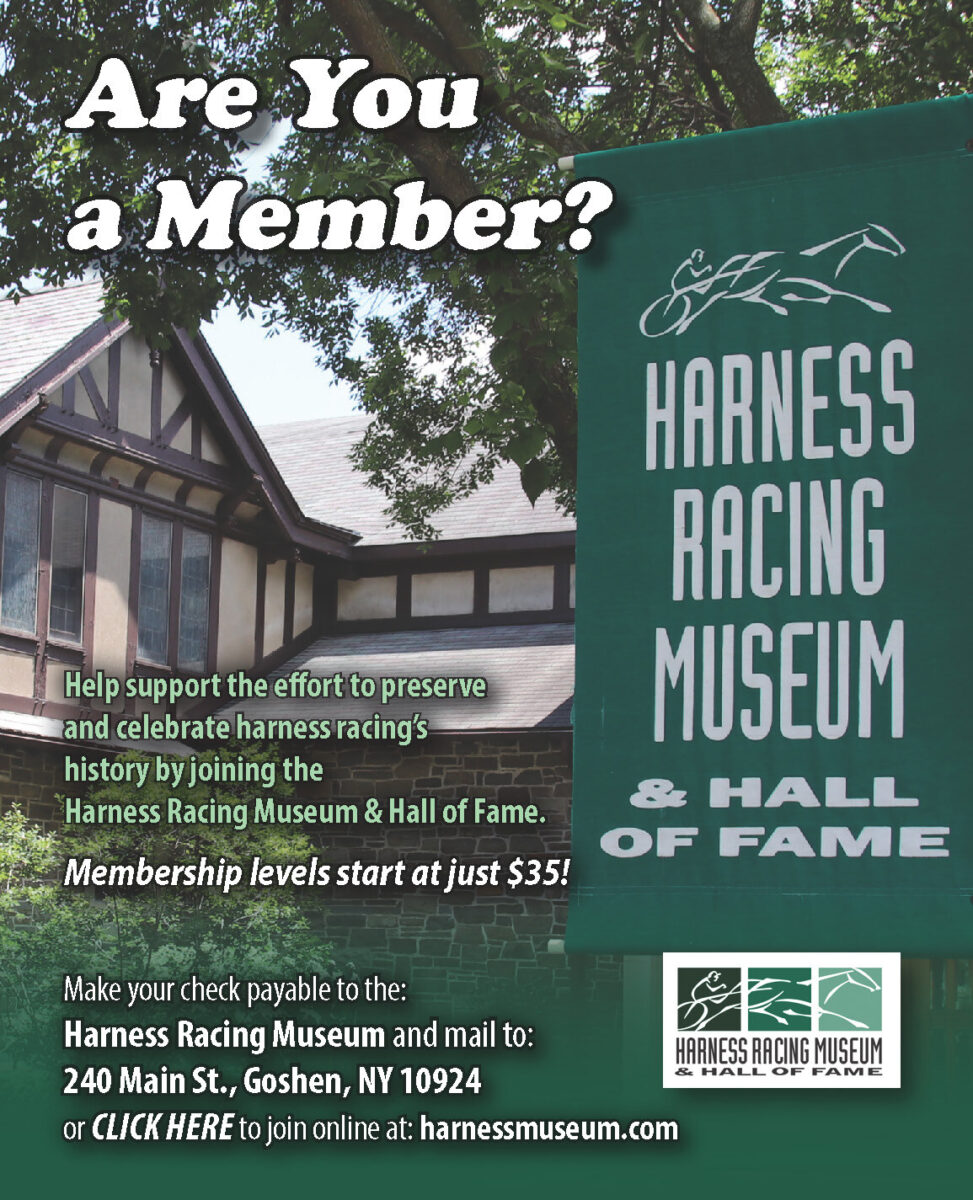Standing up for harness racing
by Dean Towers
Back in 2003, Lance Armstrong was in the middle of his long win streak at the Tour De France. He was pretty much King of the bike racing world, and sponsorship money was flying into the sport, helping just about everyone.
Most in the sport knew about the way Armstrong’s team (and others) played the game and they towed the line, but one French cyclist was having none of it. He told everyone who would listen what (he thought) was happening with Armstrong, by way of performance enhancing drugs. In the comprehensive book about the cycling culture – The Secret Race — the author shared a story about how this rider was an immediate persona non grata. At one point – the author contends — Armstrong and his cohorts were cycling surrounding the French rider on practice runs, intimidating him.
‘Keep quiet and stop killing our golden goose,’ was the gist of it.
Fast forwarding six or seven years, the house of cards that was some of cycling – and Armstrong — began to crumble. No longer was there one solitary French rider willing to shun these teams, there were dozens of them. Riders who were playing the game and were caught, were singing like a bird. The culture was changed.
When I read that book I thought a lot about harness racing. Most in this sport are that French rider – people who are honest, know something is wrong in some barns, and are not happy about it. But, in my view, the prevalent thought in harness racing has always been about keeping quiet; that saying anything gives ammunition to those who think “we’re all crooks,” or that their words might end up on an industry website. There are some in the sport – even in positions of power — who don’t even want fines and suspensions printed in a program because someone might read them. If we don’t talk about fight club, there’s no fight club.
This week that seemed to change.
I got an email on Wednesday telling me about a scuttlebutt regarding some who were talking to owners who use suspect trainers, and sharing their displeasure. Then, a few minutes later, another text came across about a brouhaha in the detention barn. My friend on the ground noted that Lou Pena was apparently in the barn with I Said Diamonds – a planned Jugette starter — and “some trainers are calling on the judges to do something.” I did what I usually do with such information, nothing. I simply expected nothing to happen.
But it did. I Said Diamonds was scratched. And there was a name behind the complaint, willingly placed right into the harness trade press.
“It was not a secret that he (Pena) was here Monday morning, sweeping up, taking care of her. It bothered me when I got here and saw Pena in the detention barn. I didn’t want to put a cloud over the race, but when someone is in the stall, you can’t ignore it.” Nancy Johansson said she was relieved I Said Diamonds was scratched.
Backing up Nancy, was the veteran trainer of the eventual Jugette winner, Bob McIntosh. Again, via Harnessracing.com:
“Yes, I was prepared to scratch,” McIntosh said. “This was just so blatant. I was glad it got resolved before I got here. The rules are posted in the barn,” he added. “In my mind, the only way to be effective is to make the owners accountable, and suspend the horse. I had heard the first of the year that Pena was training 100 horses under various different trainers, so I guess it might be true,” he said.
Those were two people standing up for their sport. And they were willing to put their names behind it, where everyone can see them.
That wasn’t all of course. Something else happened on Jug day itself. Trainer Tony Alagna put his name to the complaint regarding the Betting Line situation, reported here and elsewhere.
“We know that’s not a lot, but we called it into question and we thought it was time for us in the industry to take a little bit of a stand,” he told Dave Briggs of Harness Racing Update.
While Tony stood up, others followed. Trainers such as Jimmy Takter and Ron Burke stood right along with him, protesting by not coming out for the post parade for the first heat. They were letting everyone know how they felt about the situation.
While that was going on, a funny thing happened. On social media, on my email, on my phone, there was cheering.
“Good for them.”
“It needed to happen. I’m proud of this sport today.”
Thoroughbred people, some of whom share rather suspect opinions about harness racing (you’ve heard them), were singing a slightly different tune.
No, it wasn’t the usual “harness racing is crooked”, it was ‘we’ve all got some issues that need to be addressed, and it’s nice to see harness racing trainers doing something about it.’
Trust me, from someone with dozens of thoroughbred friends who hears this stuff a half dozen times a week, it was refreshing.
Whatever the motivation; whatever the backstories; whatever the reason this week was different from this sport’s recent past.
I applaud those who stood up to be counted. It showed passion. It showed that there’s still some fire in the belly for the sport of harness racing.
I don’t think that’s ever a bad thing.


















